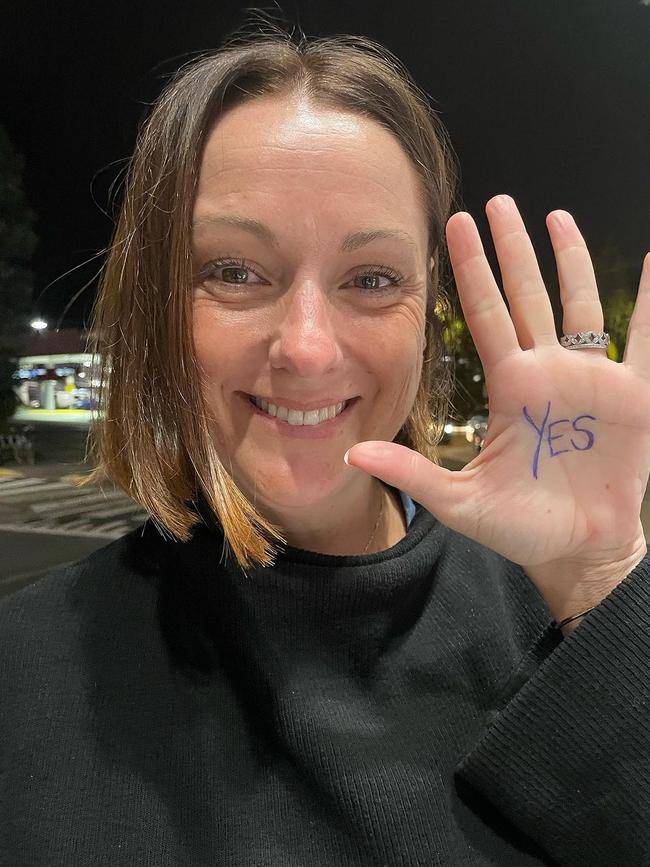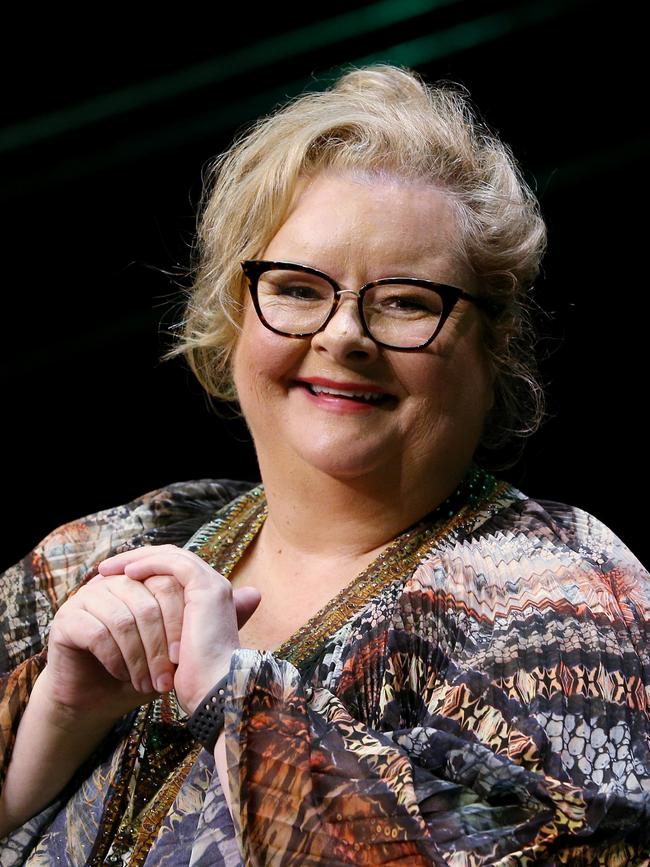Voice referendum: Everything you need to know about Yes campaign
Here is everything you need to know about the Yes campaign, ahead of the referendum on October 14 where Australia will decide whether to amend the Constitution to formally recognise Indigenous peoples.
National
Don't miss out on the headlines from National. Followed categories will be added to My News.
The Yes case argues approving the Voice will provide unity, hope and make a positive difference to the lives of Aboriginal and Torres Strait Islander people.
It is being backed by a broad range of political, business and sporting groups. Labor, Greens and independent federal MPs are all in favour, and a number of high-profile current and former Liberal politicians have also backed it, including Tasmanian Premier Jeremy Rockliff.
Many big businesses have made official statements in support of the Voice, while a few — including BHP, Rio Tinto and Wesfarmers — have made significant donations to the Yes23 campaign.
Sporting groups officially backing the Yes case include the AFL, the NRL, the Australian Olympic Commission, Football Australia, Rugby Australia and Tennis Australia.
Here’s a broad summary of some of the key reasons why many Australians in the Yes camp say they will vote in favour of the Voice.


TO HELP INDIGENOUS PEOPLE HAVE A BETTER LIFE
One area of general consensus in the Voice debate is that Aboriginal and Torres Strait Islander people face massive disadvantages in life.
They are more likely to face health challenges from birth and as they age; are more likely to experience poverty and unemployment, are less likely to complete school, are much more likely to wind up in prison, and they die younger.
There are many reasons for these gaps between Indigenous and non-Indigenous Australians, including poor access to health and education services, racial discrimination, and the after-effects of past historical wrongs.
The Productivity Commission maintains a dashboard on our “Closing the Gap” efforts (see table), and while some measures are slowly improving, other markers are going backwards.
While “Closing the Gap” is relatively recent terminology (we’ve been using those words since about 2007), federal governments have been trying to improve the lives of Indigenous people for decades. The Aboriginal Development Commission, the Aboriginal and Torres Strait Islander Commission, the Office of Indigenous Policy Co-ordination, the Northern Territory National Emergency Response (aka “The Intervention”) have all been failures at some level, as the Productivity Commission dashboard reveals.
Voice supporters say listening to the advice it will provide the government will lead to better outcomes for Indigenous Australians.
IT’S ADVISORY ONLY
The Federal Government and the Parliament seek advice on all sorts of things to help them make the right decisions.
The Voice would be a vehicle for Aboriginal and Torres Strait Islander people to advise the parliament on issues that affect them and solutions that would work best. It will not deliver any services of its own, and it will not have the power to amend or veto legislation. The parliament and the executive government will retain the power to make its own decisions, even if they are contrary to the advice provided by the Voice.


IT’S PERMANENT
The reason we are being asked to add the Voice to our constitution, rather than something created by the passing of a new law, is so a future government can not abolish it. While the size, structure and functions could be amended by future parliaments, the existence of the Voice itself could only be decided by a future referendum vote.
IT COULD HELP OUR INTERNATIONAL REPUTATION
Australia gets accused, at times, of being a racist country. In 2013, the US talk show host John Oliver memorably described Australia as “comfortably racist ... They’ve really settled into their intolerance like an old resentful slipper”.
Whether you agree or disagree with that claim, the Yes camp believes finally recognising First Nation peoples in our constitution and establishing a Voice could help change that perception overseas.
If Australia were to join the ranks of nations that have set mechanisms for First Nations consultation — it’s a select club including Norway, Sweden, Finland, Colombia and New Zealand — could Australia shrug off the ‘racist’ tag for good?
The Lowy Institute Poll from earlier this year found Australians believe the Voice would either enhance our reputation internationally (47 per cent), or make no difference (44 per cent). Just 8 per cent of respondents said they believed the Voice would damage our global reputation.
IT MIGHT SAVE US MONEY
While no budget has been set for the Voice, there’s no denying it will cost. The referendum alone will cost $364.6 million and there will be outlays for the representatives, administrative staff, possibly a stand-alone building — and none of it will be cheap.
But if the Voice functions as its backers suggest it should, and succeeds in Closing the Gap, there is a strong belief it will save taxpayer money. The theory is that a healthier, more educated, more prosperous Indigenous community would benefit the economy.
Prime Minister Anthony Albanese touched on this in a June interview, saying government programs informed by advice from the Voice would ensure government funds were “spent better and more efficiently”.
The Voice architect Megan Davis has said that a Voice would remove bureaucracy, not add to it.
In 2017, the Productivity Commission estimated the government spent $44,886 for each Aboriginal or Torres Strait Islander Australian, around double what it spent for each non-Indigenous Australian ($22,356).
IT WILL GIVE INDIGENOUS AUSTRALIANS A FAIR GO
While not all Aboriginal and Torres Strait Islander Australians want a Voice to Parliament, two different polls show 80-83 per cent are in favour.
The request for a Voice to Parliament arose from the First Nations National Constitutional Convention in May 2017 — the Uluru Statement from the Heart — but Aboriginal and Torres Strait Islander people have been asking for a fair say in the policies that shape their lives for almost 100 years.
In 1924, the Australian Aboriginal Progressive Association (AAPA) was formed in Sydney, calling for self determination, and, in 1938, Yorta Yorta man William Cooper petitioned King George VI for “Aboriginal representation in the Federal Parliament”.
The calls for a fair go for Indigenous Australians have been consistent ever since.
Linda Burney, the Minister for Indigenous Australians, put it plainly when she addressed the National Press Club in July.
“The idea of constitutional recognition through a Voice is what Aboriginal and Torres Strait Islander people themselves have asked for, not the government,” she said.
“For too long governments have made policies for Indigenous Australians, not with Indigenous Australians. We need the Voice to change that.”
More Coverage
Originally published as Voice referendum: Everything you need to know about Yes campaign





